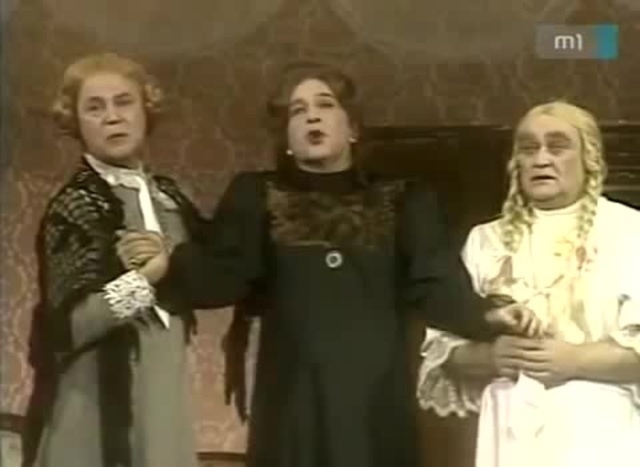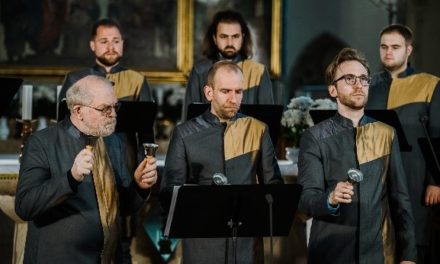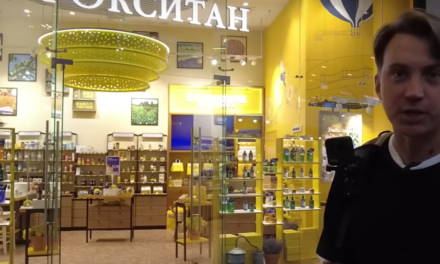On December 31, 1979, Hungarian Television presented the parody that became the best-known version of the Three Sisters .
The Three Sisters (Три сестры), presented at the Moscow Art Theater in 1901, is Anton Pavlovich Chekhov's penultimate play. The four-act drama about the Prozorov girls was translated into Hungarian by Dezső Kosztolányi, and although many great stagings of the theater chronicles have been recorded in Hungary, the most well-known version is probably the version presented on December 31, 1979 in the Hungarian Television's New Year's Eve program, which made it impossible for a long time theater performances of the piece in Hungary.
It so happened that in the version presented in the first days of December 1979 at the Madách Theater - directed by Ottó Ádám, with Éva Almási, Ilona Bencze and Ildikó Piros in the title role - the husband of one of the sisters was played by László Márkus.
"The whole performance was very nice. Still, we failed him, and I was the main culprit. I figured what if we did a parody of Three Sisters on TV's New Year's Eve show"
- said the acting legend in the 1984 monograph about him.
The basic idea was that the Prozorov girls would be played by men. From the idea of Márkus, who has a comedic vein, his colleague János Körmendi, who is also brilliant as a farce writer, carved a tight stage scene in a few days.
"I immediately stopped the other, the woman of doom, and it turned into a goddamn good-natured nonsense"
- remembered Márkus, who played Mása's husband in Madách.
Körmendi cast the naive Irina as himself, and the role of the teacher Olga was tailored for Péter Haumann.
As in the original play, the dialogues of the parody revolved around banal things. One example of the emphasis on completely uninteresting information became legendary when Irina Körmendi said that "when I woke up in the morning, I got up... and washed". In the caricature, Márkus provided the essential counterpoint, i.e. the counterpoint: in the first minutes of the scene, Masa only repeated the lyrical line evoking Chekhov's text:
"the oak tree stands on the beach, a golden chain hangs from its branches".
The hoarding of samovars is the legendary leitmotif of the parody. After Haumann's Olga a
"Masa, don't whistle! This perpetual whistling of yours is unbearable!"
called attention to the beeping tea maker at the beginning of the scene, the name-day youngest sister was given the traditional Russian tea-making equipment as a gift. Whoever came on stage handed over a samovar to Körmendi-Irina, who was less and less happy because of this.
The sisters in the parody naturally yearned to return to Moscow, their hometown, the "old Basmannaya Street", as in the original play. It is typical of the humor of the Kádár era that the audience of the television recording reacted with great cheerfulness to the repeated repetitions emphasizing the first syllable of the street name. The barely fifteen-hour scene was filmed by MTV in theater conditions - however, we have not found a clue as to whether the legendary troika had fun among the sets of the Madách or another theater, and the enthusiastic supporting supporting actors, among whom Béla Tímár and József Gyabronka They were also featured in the Madách version.
MTV rebroadcast the New Year's Eve broadcast in its entirety two weeks later, according to the customs of the time.
"On January 15, they repeated the New Year's Eve program, which of course was watched by the whole country. On the 17th, Three Sisters was on the show in Madách, Éva Almási went on stage and said: »There is a rock on the beach...« The audience choked! Of course, everyone thought of the parody. Then when they brought in the samovar, the theater fell apart! then I appeared as Kuligin... I couldn't say a word, the audience was simply lost. I swear, we didn't expect that the viewers would associate the play with the parody. He simply had to be taken off the show because he was unable to play"
- recalled Márkus in the aforementioned biographical volume.












